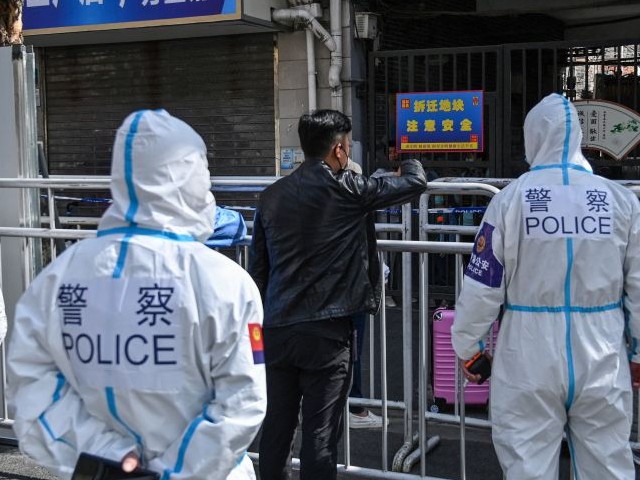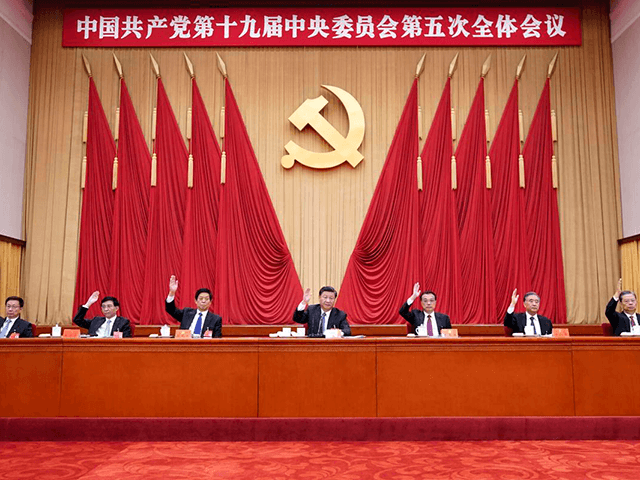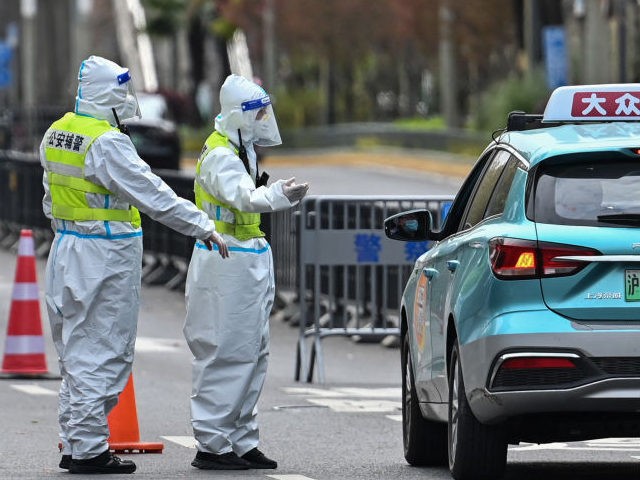Police in China’s Hunan province are ordering residents to surrender their passports until “after the pandemic,” an effort to prevent them from fleeing China as the omicron variant of the Wuhan coronavirus spreads and brutal “zero-Covid” lockdowns intensify, Radio Free Asia (RFA) reported on Wednesday.
A Hunan police officer told RFA on Wednesday that passports would soon be confiscated nationwide:
“According to official requirements, [passports] must be handed over because of the pandemic,” the officer said.
“It’s everywhere, not just Hunan. It’s across the whole country,” they said. “Anyone with a passport has to hand it over, not just people who have an employer.”
“If people don’t hand them over … then they have to expect to be investigated,” the officer said.
China stopped issuing new passports to its citizens during the delta coronavirus wave of August 2021 and suspended passport renewals in February as the omicron wave spread, but the new initiative to confiscate existing passports appears much more severe.
RFA spoke to an immigration consultant in Shanghai – now in its third week of a nightmarish lockdown with no end in sight, as the Communist Party claimed cases had surged again on Thursday – who described clients frantically seeking “a green card from a big country and a passport from a small country.”

Police and officials wearing protective gear work in an area where barriers are being placed to close off streets around a locked-down neighborhood after the detection of new cases of Covid-19 in Shanghai on March 15, 2022. (HECTOR RETAMAL/AFP via Getty Images)
Turkey and Canada are reportedly popular choices for well-heeled Shanghai residents looking for favorable exchange rates and reasonable real estate, although rumor holds that Turkish prices are about to increase dramatically.
“We have had nearly four times as many inquiries this year as this time last year,” the consultant said.
Another consultant gave a similar account and said inquiries are increasing steadily as the Shanghai lockdown wears on. Internet searches for emigration information have increased by almost 3,000 percent since March in cities under lockdown – and in cities like Beijing that fear they might be next.
Political science professor Xia Ming of New York’s City University offered an interesting observation that the wave of Chinese emigration actually began about five years ago, prompted by deteriorating social conditions in some parts of China – a trend the Communist regime and its controlled media were able to keep quiet until the “chained woman” of Jiangsu province made headlines around the world.
The woman in question was discovered chained up in a squalid shack in southeastern China in late January. At the same time, the regime was heavily promoting the disastrous Beijing Winter Olympics, known as the “Genocide Games” to critics.
Chinese Communist censors swung into action, frantically deleting social media posts that discussed the Chained Woman and even arresting people who tried to learn more about her case. Outrage nevertheless boiled across China and even leaked onto government web pages promoting the Olympics.
Xia said the Chained Woman story became such a phenomenon because it uncorked massive bottled-up anxiety among the tightly controlled Chinese public. The Shanghai lockdown, and a few other hideous citywide quarantines preceding it, turbocharged that growing anxiety among the Chinese middle class, which has justifiable come to fear the inhumane power of their authoritarian government even more than the coronavirus.
“These people who used to live more comfortable lives than everyone else suddenly found themselves facing starvation overnight, and lost any sense of personal dignity. This was a huge shock to the quietly successful middle class,” Xia explained.
“Emigration is being driven by the CCP’s authoritarian approach to disease control and prevention, not by the virus. The reason is a political one,” Taiwan-based commentator Sang Pu agreed.

Chinese President Xi Jinping, also general secretary of the Communist Party of China (CPC) Central Committee, leads other Chinese leaders attending the fifth plenary session of the 19th Central Committee of the Communist Party of China (CPC) in Beijing, China on Oct. 29, 2020. (Wang Ye/Xinhua via AP)
Sang added a note of caution for countries accepting these Chinese emigrants: “These people aren’t just refugees; they are looking for some kind of paradise where they can live freely, but they bring with them the legacy of authoritarian rule. We should stay vigilant.”

COMMENTS
Please let us know if you're having issues with commenting.